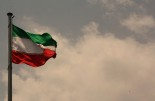Harry Geels: What economists are not telling you about high inflation
Harry Geels: What economists are not telling you about high inflation

This column was originally written in Dutch. This is an English translation.
By Harry Geels
Inflation in the Netherlands stood at 3.3% in September. That is much higher than the ECB's target of 2%. Once again, a whole range of explanations were put forward. But virtually none of them touch on the deeper essence: the euro system.
According to a rapid estimate by Statistics Netherlands (CBS), Dutch inflation for September will be 3.3%. This is much higher than the European average. According to various macroeconomic estimates, Dutch inflation will rise to just over 3% for the whole of 2025 (based on HICP / European comparisons). That is far too high. Since the coronavirus crisis, Dutch people have lost approximately 30% of their purchasing power (indexed). Let us first discuss the standard response to high inflation, before identifying the underlying cause.

Source: De Telegraaf
Causes of relatively high inflation in the Netherlands
There are several factors contributing to the fact that inflation in the Netherlands is rising faster than in some other countries. For example, wage growth in the Netherlands has remained relatively high, which is reflected in the price development of services. Furthermore, the Netherlands has relatively high tax rates, and changes in excise duties and other levies have also contributed to additional inflation in recent years. The Netherlands imposes particularly high levies on energy, much of which is imported.
According to ING and other researchers, Dutch production is closer to capacity than the eurozone average, which further exacerbates inflationary pressure. ING also mentions the larger increase in house prices and rents in recent years. More generally, it is noted that the Netherlands has structurally higher inflation than neighbouring countries due to our market dynamics, housing market and tax structure. ING even refers to inflation as “high(er) for longer”.
The core of the problem: overly accommodative monetary policy for the Netherlands
The above analyses highlight the potential causes in the current system. However, the structurally high inflation in the Netherlands has a deeper cause, namely the euro system.
Since 1999, we have been in a monetary union in which monetary policy is aligned with the eurozone average, which means that the ECB interest rate is structurally too low for the Dutch economy. This low interest rate fuels domestic demand, house prices, lending and, ultimately, inflation.
As soon as the ECB wants to slow down, it has to take into account countries such as Italy, Spain or France, where higher interest rates would stifle growth. In other words, our inflation is not just a matter of “strong wage growth” or “high rents”, but a symptom of a structural monetary mismatch inherent in the euro system. It often goes unmentioned: it is not “one size fits all”. Some economies, such as the Netherlands, need a stronger currency and higher policy interest rates.
Why this is so rarely mentioned
There are various hypotheses as to why the euro problem is so rarely mentioned. First of all, there is the political discomfort. The euro is a political project. Saying that the euro causes structurally higher inflation here is implicit criticism of that project. Many policymakers and economists are wary of this. In addition, there is probably institutional tunnel vision on the part of central banks: economic deviations are seen as a “marginal phenomenon” rather than a fundamental problem.
Then there is the long-standing belief in (micro) policy and the focus on treating the symptoms. For example, we try to moderate wages, rents or energy prices. We see the same thing in the housing market. The rapid price increases there are also largely due to monetary policy that is too “loose” for many countries. Instead of addressing this, Dutch economists prefer to squabble about mortgage interest relief or taxing capital gains, which are non-issues in the bigger picture.
Euroscepticism is uncomfortable. When I asked economist Arjo Klamer, a member of the SP and Eurosceptic, two years ago where this discomfort came from, he replied: “When the Wall Street Journal wrote an article about the euro anniversary, the many Eurosceptic economists of the time did not want to cooperate, afraid of being cancelled”. Klamer himself was also unable to bring the euro-critical economists of the time back together. “They hung up on me”.
Why this needs to be said
The structural mismatch between monetary policy and national economic reality has major consequences. It explains why we have structurally higher inflation and house prices than many eurozone countries. It explains why politicians resort to policies such as stricter mortgage standards to partially offset the effects of monetary policy. And it shows how limited the effectiveness of national policy is in this regard. It is nothing more than treating the symptoms.
Finally, it is important to understand how wealth transfers work in the economy. Policy is never neutral: one party wins, the other loses. The (too) cheap euro is positive for the Dutch export sector, but bad for importers. The excessively low policy interest rate is positive for homeowners (and equity investors) and debtors (after all, debt is inflated away by price depreciation), but negative for consumers, tenants, savers and pensioners.
In conclusion
The primary cause of the relatively high Dutch inflation is the euro system. The aforementioned causes, such as an overheated labour or housing market, are secondary factors. The one-size-fits-all interest rate of the euro is like a thermostat that has one setting for an entire flat: for some apartments it is too cold, for the Netherlands it is structurally too warm. The fact that this point is no longer mentioned says a lot about the political and intellectual (symptom-combating) climate.
It is fine to keep the euro afloat as a political project, but let us also mention who pays for it and who benefits from it.
This article contains the personal opinion of Harry Geels.










